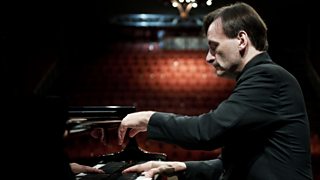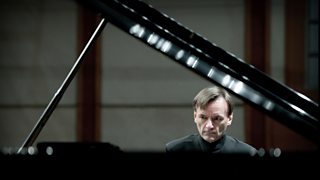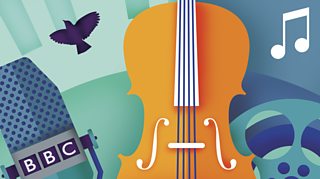Eight no-nonsense rules for classical concertgoers
We asked the pianist, composer and all-round polymath Stephen Hough to give us a few pointers for getting the most out of a concert.
1. Wear what you like
Everyone should feel completely free to wear what they like to concerts, whether that’s dressing up or not dressing up.
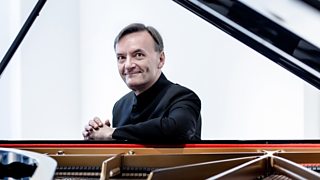
I love to see people sitting on the floor of the arena wearing casual clothes at the Proms, but I realise that some people actually enjoy dressing up a little bit for concerts: it makes it feel like more of an occasion, particularly if they’re going somewhere like the opera or ballet.
For most people, though, concerts are something to do at the end of a working day when they want to relax with friends. However highfalutin we performers and composers think ourselves, we mustn't forget that for 99 per cent of people listening, concerts are meant to be something they enjoy. So everyone should feel free to wear what they like.
2. Turn your phone off – not silent, off
We live in a world with tremendous temptation for distraction. So many of us have two or more screens in front of us all the time that we never look at anything properly. A concert is a really good opportunity to focus on one thing – so let the music unfold and have a full experience. Everyone can sit still for 50 minutes and listen to something, whether they like the music or not.
Taking photos is OK, particularly at the end of a performance. But taking photos or tweeting during the performance itself is a bit like going to the museum and then spending most of your time in the giftshop. Why use your phone to comment on how great the concert is while the concert itself is going on around you?
3. Don’t talk during the performance...
It’s just common sense! You'd hate it if someone in the cinema was on the phone or talking loudly to their neighbour. Music needs concentration: it's a courtesy to people around you to make sure everyone gets an equal experience.
4. … and try your hardest not to cough
If there's a real medical moment and you're choking, then of course no-one’s going to mind if you cough. But there’s a certain kind of careless, thoughtless coughing that does bother people, especially if it happens during a quiet moment.
There are many ways of stifling coughs and sneezes, so do have a go. Use a hanky, cough into your elbow, basically try to stifle it as much as you can.
5. Clapping between movements is absolutely fine...
In fact, it’s sometimes necessary!
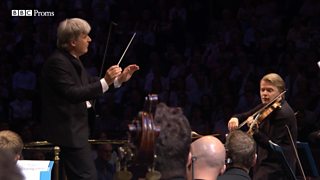
The idea that you should never clap between movements of a symphony or concerto is something that only surfaced in the early 20th century. Composers like Brahms and Tchaikovsky would have expected applause.
Of course, not every movement invites you to applaud straightaway, but there are some – by Brahms, Tchaikovsky and Rachmaninov – that absolutely demand it. It's a real violence to stop the audience applauding in these situations.
Applause is a natural eruption, a release of energy, and a very important moment. It breaks the mood, too, so that the player can have a bit of space before they start the next movement.
6. … but pause before you clap at the end
It’s important to realise that the piece doesn't end when the last note is played: the piece ends when the performer decides that it ends. Liszt’s Piano Sonata, for instance, has this amazing, hypnotic closing section that ends with a bar of rest.

Silence is actually written into the piece. If you clap immediately, then you're actually stopping us from hearing those final moments of music.
The performer uses body language to show the audience that the piece is over, so look out for that.
7. If someone makes a disturbance, be kind
Sometimes people do things during concerts that cross a line – I once did a concert where a mother let her two children play a game behind me, as if the performance were just on a TV in the corner of the room. But it’s important not to embarrass anyone. Most of the time, people are acting out of ignorance. They just don’t realise that their behaviour is troublesome. Sometimes a gentle tap on the arm is worth doing, if someone is talking on the phone or something – just as long as none of us feel self-righteous about it. It’s important that we remain friends in the concert hall.
One of the things I love about playing for audiences from different countries and cultural backgrounds is that we can all be friends while the music is playing. There may be all sorts of issues that we disagree on, but during the concert we’re all having the same experience, listening to this wonderful music. There's something quite sacred about that. So let’s argue after the concert, but not during.
8. Concentrate
Classical music isn’t always easy, and it’s not something you can just pick up and know everything about in five minutes. It’s a lifelong discovery. You’ll be listening to the same pieces in 30 years time and they'll keep revealing more and more beauty.
There's no point framing the concert experience like a little stroll in the park when you're actually climbing the Himalayas. You're in for the long haul, and you might find it a bit tough the first few times you go. But it's really worth it when you get to the top – there's no view to compare with it.
Listen to Stephen Hough on In Tune, Monday 22 August. Stephen appears at the BBC Proms as the soloist in Rachmaninov’s Rhapsody on a Theme of Paganini on 23 August 2016. Listen live on BBC Radio 3 or online for 30 days after the broadcast.
-
![]()
Prom 50: Tchaikovsky, Rachmaninov and Prokofiev
Stephen Hough performs Rachmaninov’s devilish and ever-entertaining ‘Paganini’ Variations.
-
![]()
Profile: Stephen Hough
Lifelong friends and some of the world's leading names in classical music profile the man who plays like a dream.
-
![]()
BBC Proms 2016
All the latest from the world's largest classical music festival.
-
![]()
15 excellent things we just learned about beards
The politics of shaving are way more complicated than you think.
